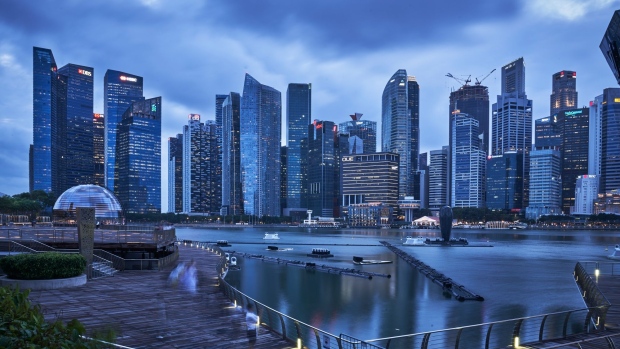Aug 6, 2021
Singapore Ramps Up Quarantine Hotels To Cope With Covid Cases
, Bloomberg News

(Bloomberg) -- Singapore has increased the number of hotels that can be used to quarantine people as the city-state seeks to control the spread of the virus amid the recent wave of infections.
More than 90 hotels are currently used to accommodate people coming into the country and those who have been in contact with Covid-19 cases, an increase from more than 70 as of May this year, a spokesperson for the Ministry of National Development said in a response to queries from Bloomberg News. Singapore’s daily virus infections in the community hit a record late last month and cases exceeded 100 for two weeks before recently ebbing.
“While the latest surge in community cases and clusters have increased the demand for isolation spaces at government quarantine facilities, we have been able to ramp up capacity to support the larger inflow of persons under quarantine that are conveyed” to these facilities, the spokesperson said. She added the government isn’t currently looking to expand the range of such sites.
Besides hotels that have been used since March last year, some government training facilities, holiday homes and former schools are also used to isolate people, who may have to stay there for two weeks.
More than 6000 people are quarantined as of August 5, a decline from the almost 10,000 seen in late July, according to data from the health ministry. As for travelers arriving in Singapore, there are more than 7,000 staying in hotels currently, the data shows.
More hotels being used for isolation purposes means travel-starved residents looking to book staycations on the island could find themselves with fewer options or having to switch plans. Still, there are more than 250 hotels currently available for holiday reservations.
“It is a win-win for Singapore,” Tan Yen Nee, director of hotels and sector manpower at the Singapore Tourism Board said in a statement to Bloomberg News. “On one hand, the hotel industry is able to play a crucial role in Singapore’s battle against Covid-19; on the other, empty rooms are filled and we can sustain jobs and businesses in the hospitality sector.”
©2021 Bloomberg L.P.